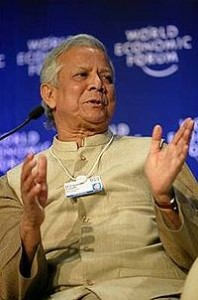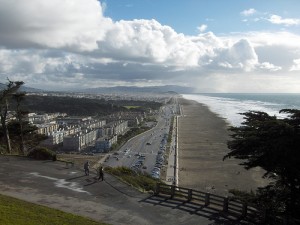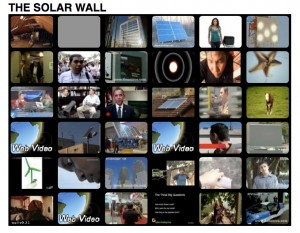 SolarWorld AG this year will honor Nobel Peace Prize laureate and micro-finance pioneer Muhammad Yunus by presenting the 2010 SolarWorld Einstein Award to him in September. The professor of economics from Bangladesh and founder of the Grameen Bank will receive the award in recognition of his breakthrough concept of micro-loans for the poor, which have helped millions of people worldwide to escape poverty. The micro-loans have, among other things, made possible installations of more than 400,000 small solar power systems, securing energy supplies for people in rural regions of Bangladesh who live far from the national utility grid.
SolarWorld AG this year will honor Nobel Peace Prize laureate and micro-finance pioneer Muhammad Yunus by presenting the 2010 SolarWorld Einstein Award to him in September. The professor of economics from Bangladesh and founder of the Grameen Bank will receive the award in recognition of his breakthrough concept of micro-loans for the poor, which have helped millions of people worldwide to escape poverty. The micro-loans have, among other things, made possible installations of more than 400,000 small solar power systems, securing energy supplies for people in rural regions of Bangladesh who live far from the national utility grid.
“Professor Yunus stands for radically new thinking in economics and banking. He has recognized the potential of the poorest of this world who manage to make a decent living on the basis of a small starting credit, a lot of creativity and the sun as the source of energy. This is more than exemplary,” explains Dr. Ing. h. c. Frank Asbeck, chairman and CEO of SolarWorld AG.
On the basis of micro-loans granted by banks held by the Grameen family since 1983, Yunus developed the concept of “social business,” which has inspired similar activity worldwide. This type of business does not strive to maximize profits and generate dividends but to solve social and ecological problems. Social business companies make available technologies for clean drinking water, affordable medication or inexpensive, clean energy.
 Emma Watson launching eco-fashion
Emma Watson launching eco-fashion
London Evening Standard reports that Harry Potter’s Emma Watson has a new collection of ecologically sound fashion that will debut at Prince Charles’s Garden Party To Make A Difference. The event is a 12-day festival in London during September that aims to give people of all ages a fun day out while at the same time demonstrating the “small steps that can, and are, being taken by all of us, interested in building a more sustainable future.”
The 20-year-old actress is the latest big-name backer for the event and will show the clothes she has helped design for fair trade fashion company People Tree.
Eco party
CenTransit, the travel portal based in Bulgaria, organised an Eco fashion
SUNDAY STREETS – GREAT HIGHWAY
The Gulf Disaster Is Far From Over
by Ryan Reynolds
![]()
A few weeks ago, I flew over the Deepwater Horizon site and saw what looked like the opposite of all the news reports: it looked more like somebody had spilled water into a Gulf filled with oil.
You don’t have to make a personal trip to the Gulf of Mexico to realize the BP disaster has blown the cover off a subject some would prefer to keep quiet: the ongoing damage inflicted by our addiction to oil.
When you see images of blackened beaches, grounded fishermen, and toxic dispersants in the water, you can’t pretend that it only costs $35 to fill your gas tank.
There are hidden costs in every drop of oil, and that’s why I made this PSA for NRDC about the true cost of a gallon of gasoline.
People in the Gulf are paying a steep price right now. Eleven people lost their lives, but the human cost goes far beyond that. The commercial fishing and tourism economies in the Gulf have been gutted, and local families trying to put food on the table don’t know where to turn. They’ve lost their jobs, wages, cultural traditions, beloved beaches, and security. This is the collateral damage of the disaster.
I didn’t grow up in Louisiana, and I can imagine those who did are even more passionate about cleaning up this mess than the rest of us. I grew up in Canada, where we have a similar tragedy being carried out right now: the ancient boreal forest in Northern Alberta is being destroyed to collect dirty tar sands oil. Oil that generates three times the global warming pollution as regular crude. As a result, entire ecosystems and indigenous communities are being devastated.
When you see what’s happening in the Gulf and the boreal, you realize we’re willing to stop at absolutely nothing in order to get our fix. And it seems to me like it’s time we recognize we have a problem. A major, major problem.
What we’re doing is literally the same thing cave men did: we set things on fire to produce energy. There are so many viable alternatives. Wind farms and solar plants, for instance, don’t explode, destroying thousands of miles of marshlands and oceans. That’s something worth focusing on.
I started out feeling angry about the spill, and I think a lot of other people did too. Slowly but surely, I’ve been trying to redirect that anger into something positive. And you start to think, “How can we change this? How can we turn this into an opportunity?”
I see this whole thing as a wakeup call: a chance to shift to cleaner energy and build a greener economy.
It’s easy to vilify Big Oil after a tragedy like this, but there are still hard working people in that industry who need to put a roof over their heads. I firmly believe we can pass clean energy and climate legislation and by doing so, put millions of Americans to work.
But we have to ask for it. We have to petition the government to move this kind of legislation forward. The Senate failed to do it this summer, but we should call on them to do it this fall. If the voices are loud enough, lawmakers will start to listen and (if only in the interests of self preservation) begin to move the country in a new direction.
I think our approach to energy is going to change one way or another. Eventually the Earth will make us change. It would be great if we could get in front of that – and better still, be here to enjoy it.
Ryan Reynolds
WHAT’S INSIDE
SUBSCRIBE TO UPDATES HERE
NEW! ECO TRAVEL
NEW: ORGANIC
NEW! WIND & WAVES
N THE MIX
 TV
TV
VISIT THE SOLAR WALL
QUESTPOINT GOES MOBILE – Beta






